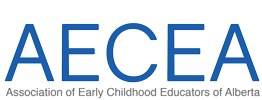On April 1, 2025, the Government of Alberta implemented major changes to the child care affordability funding model, including the elimination of the child care subsidy, the introduction of a flat-rate $15/day parent fee, and permission for providers to charge optional supplemental fees. These changes mean that all Alberta parents now pay a minimum of $326.25 per month for full-time care per child (equivalent to $15 per day), with no subsidy available to reduce parent-paid fees for lower-income families for whom this rate may be unaffordable.
To understand how these changes are affecting families, providers, and Alberta’s early learning and child care (ELCC) system, The Muttart Foundation, in partnership with the Association of Early Childhood Educators of Alberta and the Alberta Early Learning and Care Leaders’ Caucus, conducted research between March and May 2025. This research provides a snapshot of how child care providers and families responded to the changes in the period when the new funding approaches were taking effect.
View the report:
Check out the AECEA Connect session on the report at https://aecea.ca/resources/aecea-connect.
Report Summary
This report examines how funding changes are affecting lower-income families and their access to regulated ELCC.
Key Findings
All lower-income families interviewed experienced increases in child care fees, averaging $195 to $326.25 per month per child, with even higher increases for families with multiple children.
- On average, the monthly parent-paid fee increased by $227 for families with one child in care and by $478 for families with more than one child in care.
- The new flat-rate fee of $326.25 per month is unaffordable for families earning under $50,000, and families with two children now require incomes above $100,000 for child care to be considered affordable.
- Alberta is now one of only four provinces without a child care subsidy, while most other provinces pair flat fees with targeted subsidies to maintain affordability.
Impact on Families
- Families are already withdrawing from regulated child care, reducing hours, or planning to leave the workforce due to rising fees.
- Many described financial strain, increased debt, and having to cut essential household spending.
- Families considered switching to unlicensed care or rearranging work schedules, though most expressed concern about the impact on quality, safety, and children’s development.
- Parents feared that withdrawal would reduce children’s access to socialization, early learning opportunities, and specialized supports — especially for children with additional needs.
Impact on Child Care Programs
- Service providers anticipate reduced access for lower-income families, higher administrative challenges, and the emergence of a two-tiered system.
- Some programs increased fees immediately; others planned to use reserves temporarily to buffer families.
- Many centres reported communication challenges due to the lack of advance notice from the government, leaving families confused and anxious.
System-Level Concerns
- The funding changes risk undermining the equity goals of the Canada-Wide ELCC system.
- Withdrawal from regulated care could impact children’s development and exacerbate workforce instability, particularly for women.
- Providers also noted the continued lack of investment in ECE wages, raising concerns about recruitment, retention, and program quality.
Recommendations
The report recommends that the Government of Alberta:
- Reinstate or redesign a targeted child care subsidy for lower-income families.
- Collect and publish participation data on lower-income families in regulated care.
- Improve communication with providers and families before implementing major policy changes.
- Track and publicly report supplemental fees to ensure transparency and equitable access.
Join us for an AECEA Connect session on the report on December 11, 2025!
